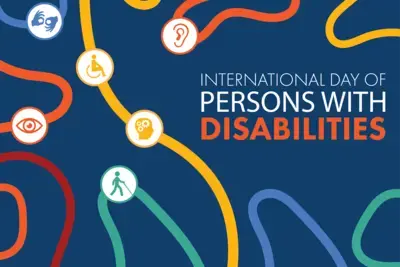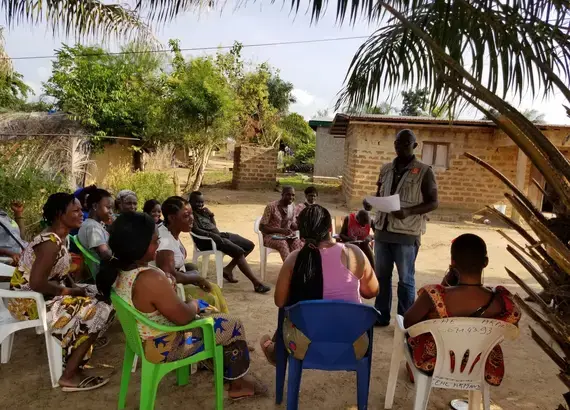
Success Story
Building Political Capital in Côte d'Ivoire Through Microcredit
Microcredit programs are often seen as solutions to help the most vulnerable. In Côte d’Ivoire, CARE International and the National Democratic Institute are exploring how microcredit can also enhance civic participation.
CARE has long worked with Ivoirians – especially women – to establish Village Savings and Loan Associations (VSLAs). Traditionally, these groups come together based on “affinity” – people from the same neighborhood, ethnicity, or who share some other strong interest – and CARE provides basic training on topics like savings and managing micro-enterprises.
In partnership with NDI, CARE has piloted an approach to set up VSLAs to create a shared entrepreneurial spirit and common purpose among Ivoirians who would not normally interact, and who in some cases could even be on opposite sides of the political spectrum. These VSLAs are driven less by affinity, which can lead to groups of people with the same background, and more by diversity and inclusion. CARE worked with Ivoirian civic partners and local leaders to select a thousand young people (male and female) and women (of all ages) from divergent backgrounds and experiences to join these VSLAs.
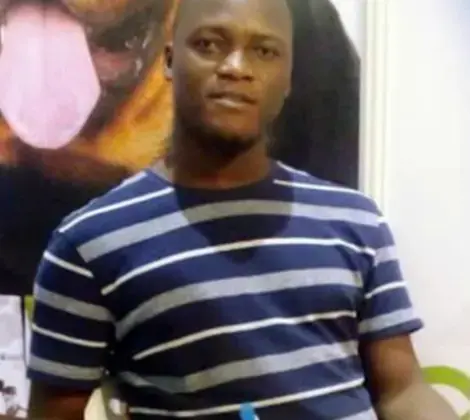
Tidiane K. is the leader of a 23-member VSLA in Yopougon (a densely populated area of Abidjan). He is also an active member of a political party and was involved in violent clashes over a contested election a decade ago that often split communities along ethnic or other demographic lines. He explained that “the social divide prevented us from living together, speaking together, or even collaborating with people from other ethnicities or other political parties.”
However, when Tidiane was accepted into CARE’s VSLA program, he described a change, noting, “At the start of the project, I was a little skeptical along with the other members of the group, because the VSLA was a mix of people from all different backgrounds, ethnic groups, genders, and political parties. But little by little as time went on, a certain fraternity was created among us, and reinforced by open and frank discussions that we had during the meetings about citizenship, violence [and] political participation.”
While VSLA members spend half of their time learning about personal financial management, the rest of the time is focused on discussion. For example, when Côte d’Ivoire enrolled citizens for a national identity card, and later registered them as voters, the VSLAs across the country held discussions about the importance of these documents for daily life and civic participation. As elections approach in October, the VSLAs will also be a place for peaceful democratic debate about the qualifications of their preferred candidates.
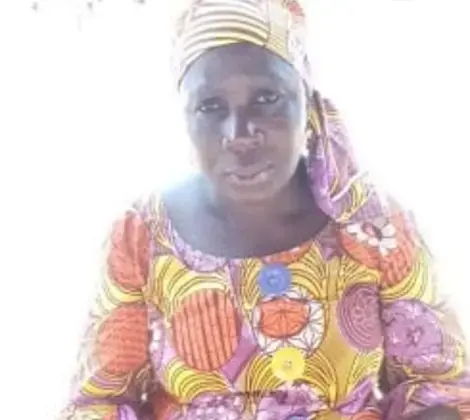
In addition to increasing their confidence to engage in politics, the income from the VSLAs is also empowering women like Barakissa economically and in the home. She took a loan from her VSLA to grow her small juice business, and she says it has completely changed her status in her family. “The regard that others gave me, especially my husband, changed. Also, my children have become more attentive to the advice I give them.” Empowerment within the home helps these women face fewer obstacles from their families as they engage in elections and pursue other political activities outside of the home.
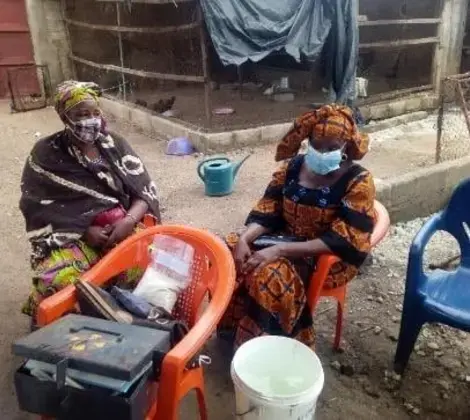
Zata has also dedicated herself to greater political action outside the home. She was inspired by another woman who leads the network of VSLAs in Bouaké. This woman began in her group not knowing how to read, write or speak French. She is now an elected local councilor. Zata has followed this woman’s example, joining a political party and volunteering to mobilize young people to register and vote.
Back in Yopougon, Tidiane affirmed that the VSLA members have become close to family, proving intergroup interactions and collaboration can improve social bonds and help people overcome political and other prejudices. “Now we call each other regularly and when a member of the group comes into difficulty or experiences a happy event, we all come to their aid in raising funds or go visit them in support.” Group members have a high level of confidence in each other, which is needed to pool their resources to create savings, give loans, and also put aside funds for member support as needed. “I have come to understand everyone in the group and even those outside of the group, and in my neighborhood I promote cohesion… I am convinced that we can get involved in politics without violence. Everyone around me, my family, my friends have noticed this change in my behavior. I am a new man.”
NDI's work in Côte d’Ivoire is generously funded by USAID.


